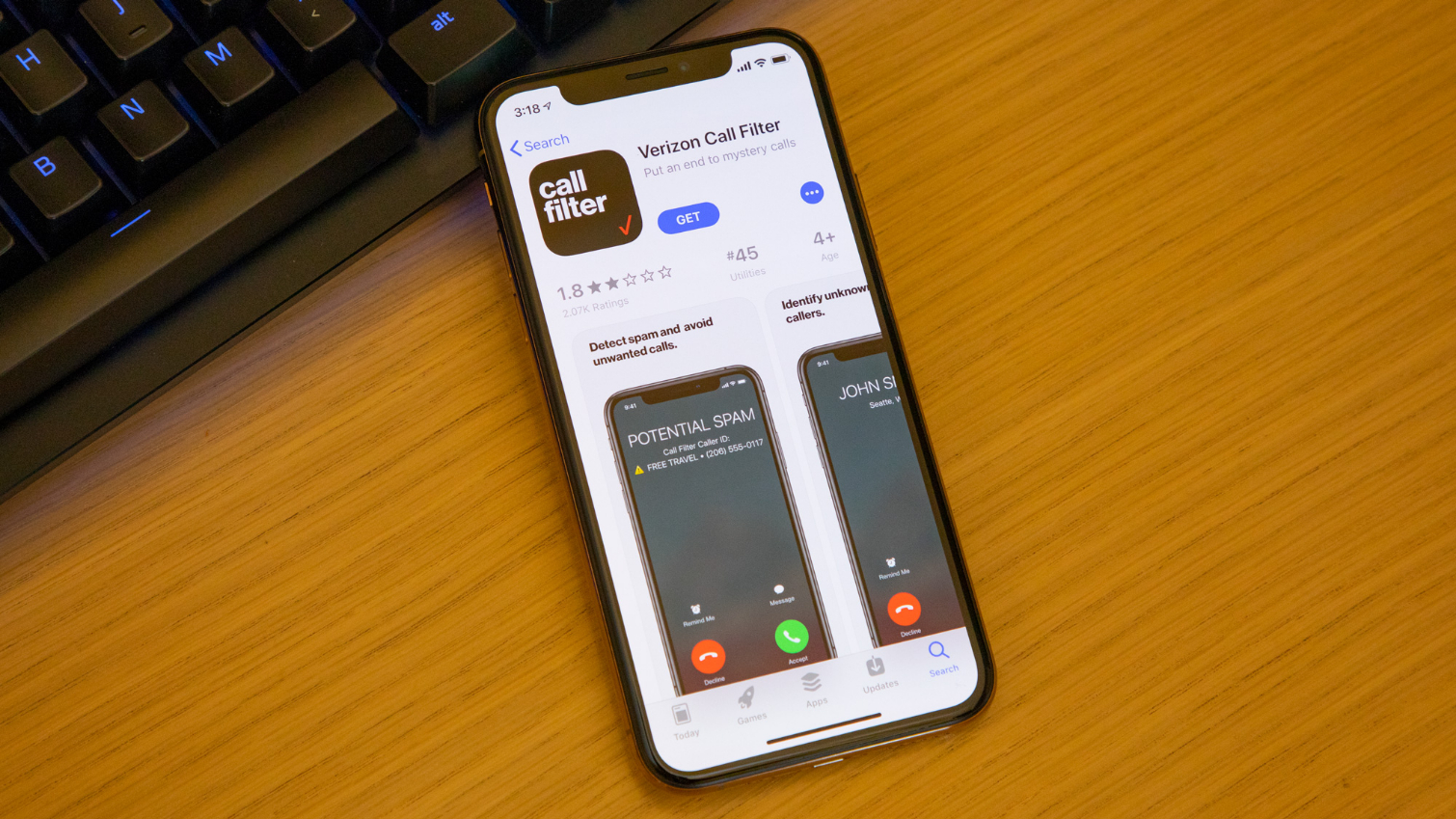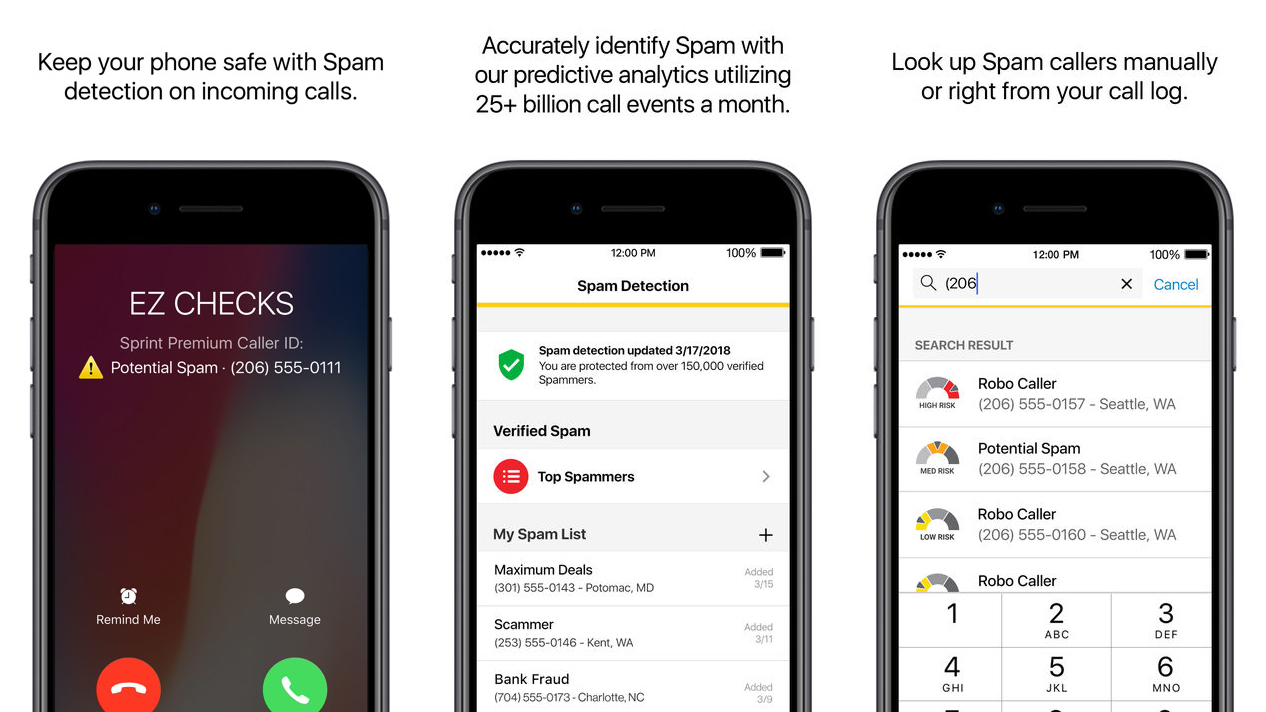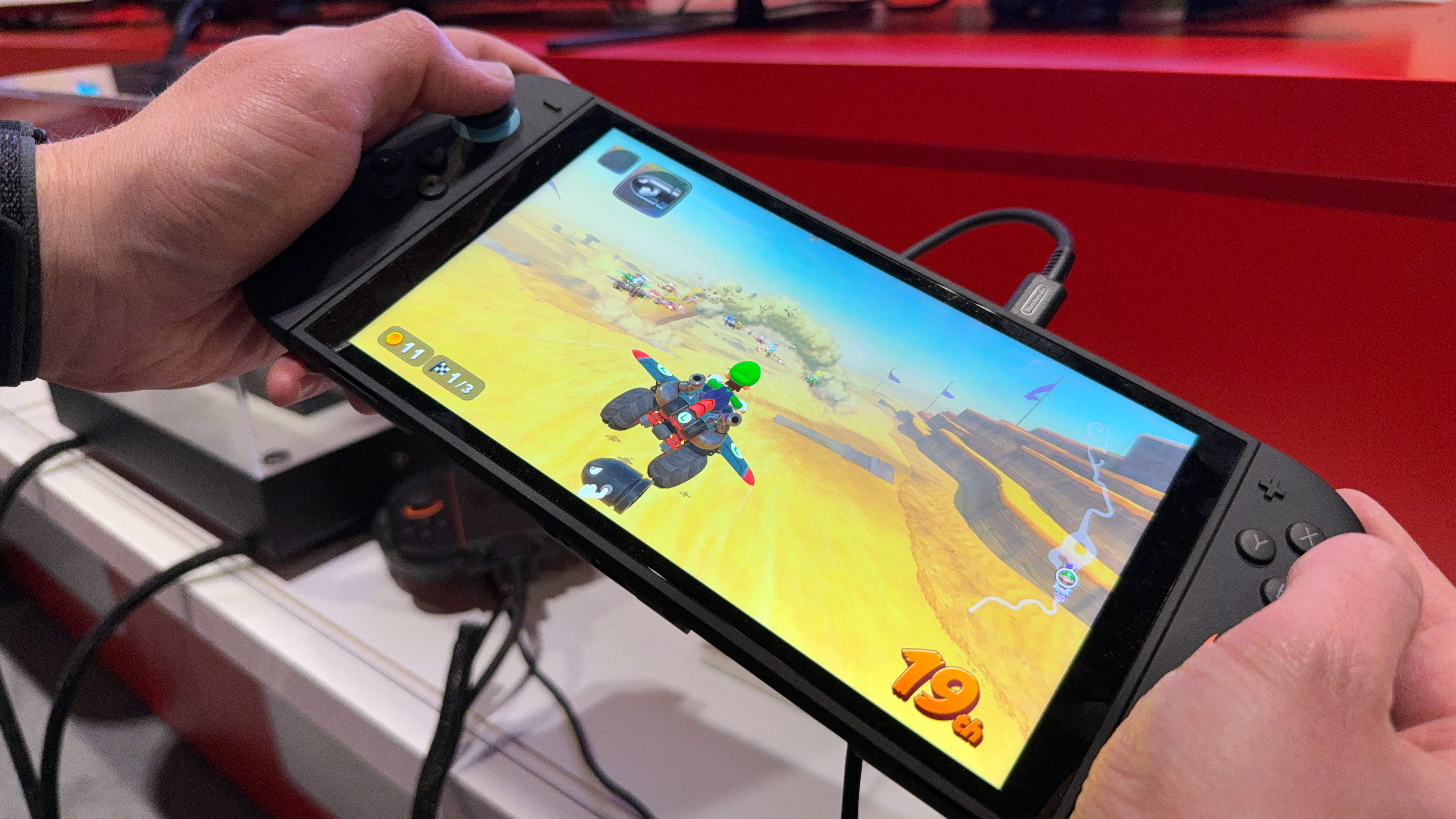Stopping Robocalls: What the Big Four Carriers Are Really Doing
T-Mobile and AT&T are now working together to verify calls
No, you aren't imagining it — robocalls really are getting worse. Roughly 2.8 billion of them were placed in January of 2018, according to YouMail's robocall index; one year later, that number rose to 5.1 billion during the same month span in 2019.

The good news is that, legally speaking, wireless carriers cannot ignore the issue any longer. Earlier this month, the Federal Communications Commission passed a provision that would force network operators to implement SHAKEN/STIR, the new industry standard for verifying the source of phone calls. Carriers have until 2020 to adopt SHAKEN/STIR.
All of the major networks have assured Tom's Guide they will deploy the protocol for their customers before the government is required to step in. That's a good thing, because SHAKEN/STIR works only if all telecoms support it, both the network issuing the call as well as the one receiving it. Until then, each carrier has delivered its own form of robocall blocking, sometimes as a default behavior of the network and other times in the form of extra paid features that require a monthly fee.
With all the major players focused on cooperating to achieve the same goal and the government now involved, robocalls should wane. However, it's still going to take time. Here's where the Big Four wireless providers stand with respect to robocall blocking: the protection they offer out of the box, the optional features they sell and their plans for the future.
Updated August 14, 9:43 a.m. ET: T-Mobile and AT&T have announced they are partnering to implement cross-network call verification using the SHAKEN/STIR standard, effective today. Additional details can be found below.
Verizon
All of Verizon's postpaid customers can enroll in Call Filter for free. This service comes in the form of a preinstalled app on new Verizon phones, which means it isn't available on every handset just yet. (That may change in the future, as Verizon says it will eventually make Call Filter an independent download on the Google Play Store. The stand-alone Call Filter app for iOS is already live on Apple's App Store and can run on iPhones as old as the iPhone 4.)
Once you've opted into Call Filter, Verizon's network will automatically flag calls it considers suspect with one of three levels of risk: high, moderate or low. If the network believes the incoming call to be spam, your phone will let you know with a Potential Spam alert in the caller ID field. An option in the app's settings can terminate high-risk calls before they even reach your device.

For an additional $2.99 per month on top of your regular bill, you can drill down and get a bit more specific with your blocking preferences. This paid version of Call Filter gives you the ability to automatically reject medium- and low-risk calls as well, block specific numbers, and see caller ID details for unknown numbers. The Call Filter app also houses a database where paid users can look up suspicious numbers.
As for Big Red's plans to stem the tide of robocalls in the future, a Verizon representative told Tom's Guide that the company has already rolled out SHAKEN/STIR in cooperation with another unnamed network, and "connections with the nation's other largest carriers are not far behind." It should be deployed in full "in the next several months."
MORE: Will Robocalls Finally Be Banned? What You Need to Know
While SHAKEN/STIR will not block robocalls outright, it is designed to prevent spoofing. This occurs when a malicious caller is represented by a fake (usually local) number in the caller ID field, while the actual source of the call remains unseen. SHAKEN/STIR prevents spoofing through the use of digital certificates, which are checked at the call's originating network and again by the receiving network, to ensure that the connection hasn't been rerouted at some point in the chain. When an incoming caller is verified, you'll know thanks to a notification on your phone's screen.
T-Mobile
T-Mobile was the first carrier to deliver a free service to ward off robocalls, with Scam ID and Scam Block in 2017. Scam ID is enabled by default for all T-Mobile customers and flags potential spam with the text "Scam Likely" in the caller ID field. Scam Block simply rejects those calls outright, rather than letting them ring your phone. Note that Scam Block is an opt-in service.
The Uncarrier offers a premium version of this feature, called Name ID, which allows you to filter unwanted calls by their nature. (For example, you can instruct the network to auto-reject political calls but allow charities to reach you.) Name ID is part of T-Mobile's most-premium unlimited plan, now called Magenta Plus.
T-Mobile is also hard at work readying SHAKEN/STIR. In January, the company launched its implementation of the technology, called Caller Verified, in cooperation with Comcast's Xfinity Voice home phone service. Then, in August, the carrier announced that it has partnered with AT&T Wireless to implement SHAKEN/STIR for customers on both networks. That means if you get a call from an AT&T user on your T-Mobile phone, you'll know when it's legitimate, and not a scammer masquerading with a local number.
So far, only 12 Samsung and LG smartphones with the latest software updates will display verification on T-Mobile, and the company has not yet said when other phone makers will be added.
Sprint
Strangely, Sprint doesn't offer any sort of spam identification or blocking by default. If you want those features, you'll have to pay $2.99 per month for a service called Premium Caller ID, which notifies you when a call you're receiving is suspected to be spam.
As with Verizon's implementation, Sprint presents these calls with one of three severity levels, and you could set up Premium Caller ID so that it automatically rejects calls of a certain risk. Additionally, Premium Caller ID will automatically identify callers, even if they're unknown numbers and not in your contacts list. You can block any number you like and report it to help Sprint refine its warnings.

It's unfortunate that Sprint doesn't offer the same level of free protection that all customers with Verizon, T-Mobile and AT&T get out of the box. But Premium Caller ID is at least available to the Now Network's prepaid customers at the same price charged to postpaid users. That's a good thing, as prepaid subscribers typically miss out on such features. Premium Caller ID also works on every handset sold in Sprint stores, both as an App Store download on iPhones and preinstalled on Android devices.
Looking forward, Sprint told Tom's Guide it's "fully committed to deploying SHAKEN/STIR," and plans to "implement and test cross-carrier interoperation this year."
"We appreciate and support the FCC's orders to give carriers more flexibility and freedom to block illegal and unwanted calls," the carrier said in a statement. "We will continue to work to provide the tools that will help to solve this industry issue."
AT&T
Starting in July, by default AT&T will automatically detect and block robocalls and serve suspected spam warnings over Caller ID for new customers. Existing subscribers can download the carrier's free Call Protect app to get those features before AT&T rolls them out to every user in due course. Call Protect also provides the ability to add specific numbers to a personal block list.
Those who opt for Call Protect Plus (an additional $3.99 per month) gain unknown caller identification, reverse-number-lookup capabilities and the choice to make certain categories of calls go straight to voicemail. Call Protect is available as a download on both iOS and Android and comes loaded on Android devices sold by AT&T.
As with its competitors, AT&T's SHAKEN/STIR implementation is still in the works. However, as of August the carrier has launched the verification standard in cooperation with T-Mobile, and earlier in the year AT&T’s home phone service partnered to deliver it in tandem with Comcast Xfinity Voice.
Outlook
The good news is that all four major carriers are taking steps to eliminate robocalls, both through bespoke features and services and also by working together to enforce government-mandated standards.
The bad news is that more carriers still need to implement blocking features at the default level; they were forbidden from doing so until the FCC changed its regulations this month, as in the past, blocking had to be opt-in. Until that happens and until SHAKEN/STIR is delivered globally on every major network, the robocall problem is likely going to get worse before it gets better.
Furthermore, because of the nature of spoofed calls, blocking one known fraudulent number doesn't do much. Robocallers can assume any number within a never-ending list of fakes, and the technology to produce robocalls is now cheaper and more accessible than it's ever been.
In the meantime, Verizon, T-Mobile and AT&T offer a base level of free protection from robocalls. If you already belong to Sprint and don't mind spending a bit extra on your monthly bill, that company's Premium Caller ID service offers a robust set of tools for a reasonable price.
Sign up to get the BEST of Tom's Guide direct to your inbox.
Get instant access to breaking news, the hottest reviews, great deals and helpful tips.
Adam Ismail is a staff writer at Jalopnik and previously worked on Tom's Guide covering smartphones, car tech and gaming. His love for all things mobile began with the original Motorola Droid; since then he’s owned a variety of Android and iOS-powered handsets, refusing to stay loyal to one platform. His work has also appeared on Digital Trends and GTPlanet. When he’s not fiddling with the latest devices, he’s at an indie pop show, recording a podcast or playing Sega Dreamcast.
